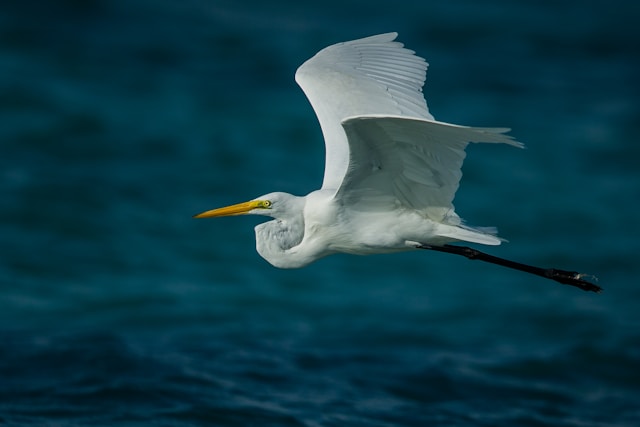Warming oceans, overfishing, and disease put nearly a third of British Bird species at risk
The UK has added five more seabird species, including the common gull, to its red list of birds at risk of extinction, according to recent research published in the British Birds Journal. The other species newly classified as red-listed are the Arctic tern, Leach’s storm-petrel, great black-backed gull, and great skua. This addition underscores the growing threat to the UK’s seabirds, driven by climate change, overfishing, and disease.
The red list, part of the UK’s Birds of Conservation Concern (BoCC) assessment, now shows that nearly a third of bird species in Britain are at risk of local extinction. The International Union for Conservation of Nature (IUCN) and BoCC use a traffic light system to rank species based on population decline, geographical range reduction, and extinction risks.
Embed from Getty ImagesSeabirds in the UK face significant challenges due to rising ocean temperatures and changing weather patterns, which disrupt their food sources. Overfishing and bycatch further threaten their survival, reducing the availability of prey like sand eels, a critical food source for many seabirds. The development of offshore renewable energy and the spread of invasive predators also pose additional risks.
The latest outbreak of Highly Pathogenic Avian Influenza (HPAI), which emerged in 2021, has particularly impacted the great skua, leading to its inclusion on the red list.
However, there are some positive developments. The European shag has moved from red to amber status, and the black guillemot has improved from amber to green. These changes highlight the effectiveness of certain conservation efforts, though more needs to be done.
To combat these threats, conservationists are calling for expanded marine protected areas, stricter regulations on bottom trawling and cast nets, and continued bans on practices like sand eel fishing, which was restricted in the UK in March 2024 to support seabird populations.
The status of these species will be reassessed in 2027, providing a crucial window for action to prevent further declines.
Analysis:
Political: The addition of more seabird species to the UK’s red list is likely to increase pressure on the government to enhance environmental protections. There could be calls for stronger regulations on commercial fishing practices and increased funding for conservation initiatives. The government’s response will be closely watched by environmental groups, which may advocate for more aggressive action to combat climate change and its effects on marine life.
Social: The decline of common seabirds like gulls could impact cultural and social aspects of life in the UK, particularly in coastal communities where these birds are part of the local landscape and traditions. The potential loss of these species could diminish the experience of British seaside holidays, a cherished part of national heritage.
Racial: While the article does not specifically address racial issues, the decline in seabird populations could have broader environmental justice implications, particularly for coastal communities that might be more vulnerable to the effects of climate change and biodiversity loss. Ensuring that conservation efforts are inclusive and benefit all communities is essential.
Gender: The article does not directly address gender issues, but women often play key roles in environmental activism and conservation efforts. The loss of these seabird species might galvanize further action from women-led organizations and campaigns focused on protecting biodiversity.
Economic: The decline in seabird populations could have economic implications for coastal tourism, particularly in areas where birdwatching and nature tourism are significant. Conservation efforts that successfully protect these species could help preserve or even boost local economies by maintaining these attractions. Additionally, the fishing industry might face increased regulations to mitigate bycatch and overfishing, which could impact their operations.
